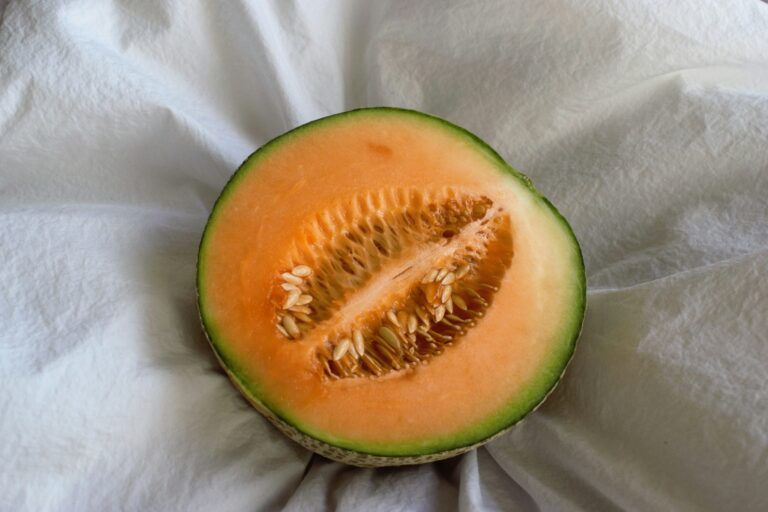The scientific name of the Bell Pepper is the Capsicum annuum group and it belongs to the Solanaceae family. Bell Pepper is also known as Paprika. Bell Peppers are used as a vegetable. Sometimes Bell Pepper is grouped with less Pungent chili called Sweet Pepper.
Bell Peppers are native to Mexico, South America, and Central America. Christopher Columbus gave the name Bell Pepper. Columbus was searching for the Peppercorn plant to produce black Pepper. At that time, Columbus took samples of a wide variety of Peppers back to Europe. Since then, Bell Pepper has become quite popular and spread throughout the world.
Size: Bell Peppers are 4 to 5 inches long
Colour: Red, green, orange, and yellow colors
Flavored: Grassy and slightly bitter
Shape: Blocky in shape
Nutrients
Bell Peppers are composed of 90 % of water, the rest are carbs, protein, and fat. These nutrients have many health benefits and prevent you from many diseases. There are the following nutrients contained in 100 grams of Bell Pepper.
- Calories: 31
- Water: 90%
- Protein: 1g
- Sugar: 4.2g
- Fiber: 2.1g
- Fat: 0.3g
- Carbs: 6g
| How to grow Bell Pepper? |
Bell Pepper takes at least three months to ripen. It depends on which varieties you want. Green Pepper is the most bitter. If you leave a green Pepper and can’t separate the fruits from a plant, the colors change from yellow to orange and then red, which is the sweetest version.
Healthy benefits of Bell Pepper
Like other plant foods, Bell Peppers are also considered healthy food. Bell Pepper has been linking reduced many chronic diseases such as cancer and heart diseases. In addition, Bell Pepper has many other health benefits.
Eye Health
Antioxidant properties contained in Bell Pepper, such as Lutein and Zeaxanthin, improve your eye health and protect your retina from oxidative damage. Many studies show that regularly using Bell Pepper may reduce the risk of both, Cataracts and Macular degeneration. In addition, Bell Pepper may help to reduce your risk of visual impairments.
Prevent from Anemia
Anemia is a condition in which the ability of your blood to carry oxygen to your tissue is reduced. Anemia is caused by iron deficiency. The main symptoms of iron deficiency are weakness and tiredness. For this reason, Bell Pepper must use in your diet which may increase your body’s iron stores and prevent anemia.
Reduced blood pressure
Bell pepper contains vitamin C, which helps control blood pressure and has beneficial effects to remove excess body fluid and reduce pressure within your blood vessels.
Reduced risk of Heart Attacks
Bell Pepper contains an Anticoagulant that may help to prevent blood clotting, which is responsible for heart attacks.
Reduced risk of Diabetes
Bell Pepper contains vitamin C, which helps reduce high blood sugar levels in people with type 2 diabetes. In addition, Bell Pepper is high-fiber food, which helps slow down sugar levels.
May prevent cancer
Bell Pepper contains Carotenoids, which is powerful antioxidant effects and prevent you from many types of cancer. Bell Pepper also contains sulfur, which helps prevent cancer.
Boost your immunity
Ripen Bell Pepper maximizes the amount of vitamin C, which helps boost your immunity and makes them a great way to stay healthy.
Produce serotonin and norepinephrine
Bell Pepper also helps to balance your mood. Bell Pepper contains vitamin B6, which helps your brain produce serotonin and norepinephrine chemicals, which have beneficial effects on your mood.
In addition, Bell Peppers also help with sleeping. If you can’t sleep at night, use it in your diet because it contains vitamin B6, which helps in the production of melatonin, which helps in natural sleep.
Reduced cholesterol level
Bell Pepper contains nutrients such as Capsaicin, which helps reduce harmful cholesterol levels in your system.
Keep your skin fresh and glowy
Bell Peppers contain a rich amount of vitamin E, which benefits your skin and keeps your skin fresh and glowing.
Side effects of Bell Pepper
Bell Pepper is likely safe when used in our diet. Taking it in large amounts may cause stomach irritation, sweating, and irritating of the eyes, nose, and throat. Do not use Bell Peppers on sensitive skin and near the eyes.
FAQ
Which bell pepper is good for health?
Red peppers are more nutritious than others because red peppers are harvested longer than green peppers. green peppers are harvested earlier before turning yellow, orange, and red.
What are the benefits of eating bell peppers?
Bell Pepper has been linking reduced many chronic diseases such as cancer and heart diseases. In addition, Bell Pepper has many other health benefits such as Reduced blood pressure, Boosted immunity, Reduced cholesterol level, and Keeping your skin fresh and glowy.
How long do bell peppers take to grow?
Bell peppers take to grow 60 to 90 days so most gardeners buy peppers plants rather than grow them from seed.






